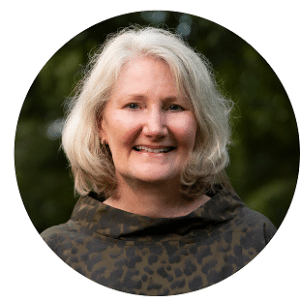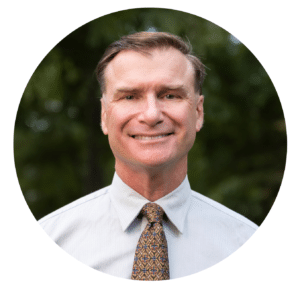This Month’s Theme —
Retirement
The body of retirement planning starts with the foundation of your personal goals, satisfaction and family situation. Building out the structure are the pillars of financial planning, particularly investments and scenario projections.
Below we offer perspectives for your consideration. These are starting points for your personal vision. We invite you to reach out for deeper conversation and modeling.
Our topics this month, for the benefit of your process:
- Listening to the body in decisions about retirement.
- The importance of portfolio rebalancing.
- Industry myths about retirement.
- Early-retirement strategies.
A New Tool for Retirement Decisions:
Our Body
By Gayle Colman
In April the Wall Street Journal published an article entitled: Are You Emotionally Ready to Retire? The writing composed “8 questions to ask before taking the plunge.” I was intrigued and then thrilled that the answer to the first question pointed the reader to their/his/her body.
The first question the author asks (and focus of this letter to you) is:
Every Sunday night, as I anticipate returning to work, do I look forward to finishing tasks, seeing friends and colleagues and perhaps learning something new? Or, do I dread another week of tedious tasks and difficult people?
[Note: The remaining seven questions are provided at the end – just in case you want to see all of them.]
The author invites us to do a little soul-searching by paying attention to our gut feelings at the end of the weekend or vacation. Is our belly aching with worry, or fluttering with excitement anticipating another workday or bouncing in between? The author shares an example of a CEO who retired “early” at age 67 to find a resurgence in happiness engaging new hobbies and life pursuits. His decision was found in his stomach telling him what his mind was unable to see.
The importance of multiple forms of intelligence cannot be over emphasized. And in our big transition decisions, where money is at the core of skillful decisions, we have known and unknown obstacles to help guide those decisions. Most, if not all, of the obstacles are in the form of knowledge and practical “what if” calculations. With these financial projections, useful conversations follow interpreting the data along with generous questions about your dreams and what matters most. We appreciate these conversations with you. We love supporting you and your dreams. We assist you in the personal and the practical realms of your life.
What we can never do, no one but you can do, is feel the interior sensations and wisdom that arise in your body offering precious unique information about your authentic choices. Brain science is quickly catching up and measuring the complexity and interconnectedness of our body and brain. But even if we do not have all of the studies mapped out about body intelligence for our brain to consume, we can go directly to our gut, receive and honor the unique intelligence our belly offers. In this situation about a retirement decision, receiving important gut feedback about what truly moves us, feeds us, and nourishes our life – now – is a superior practice. Gripping to an earlier moment in our career from the past or lingering with a belief projected into the future, is not current reality and does not serve your decisions.
What is a small move, a tiny step you might choose to take to include your body feedback in a next financial decision?
- Have I thought carefully about my financial picture? What expenses am I prepared to cut if money becomes tight?
- What do my already retired friends, relatives and colleagues think?
- Would I like part-time work for a more gradual retirement, or is “cold turkey” better for me? Is part-time work even realistic in my field?
- Do I have hobbies or interests that could fill my time? Is there volunteer work that I’d like to do?
- What friends do I have now that involve neither my career not my partner?
- What role is my partner playing in my decision about retirement?
- Do my partner and I have similar ideas about travel or where we want to live in retirement?
Source:
https://www.wsj.com/articles/ready-to-retire-emotionally-11618007274
Portfolio Rebalancing
Is a Good Retirement Habit
Your investment portfolio is a crucial part of your financial well-being in retirement. Clients have recently received our Semi-Annual Commentary Letter and Performance Report, which includes our investment commentary. The commentary reviews the past year’s investment results along with some thoughts for the future. We also include a detailed snapshot of your individual portfolio.
Shortly, we will rebalance your portfolio to align with the asset allocation defined in your Investment Policy Statement. Portfolio rebalancing helps you minimize risk and keep on track for your retirement goals when your portfolio drifts with the market. We optimize the rebalancing trades between retirement and non-retirement accounts for best tax- and long-term growth results.
After making the decision to retire, the focus of investing shifts from growth, to preservation and risk management. Effective risk management includes periodic rebalancing. This Wall Street Journal Article walks through the intelligence behind disciplined rebalancing—which grows in importance during retirement years.
Wall Street Journal Article: Portfolio Rebalancing Is a Good Retirement Habit
The Many Myths
Swirling Around Retirement Planning

Back in May, Rich shared his thoughts on the topic in A Rich Blog post. In case you missed it:
“I am always amazed about the dire perspective many professionals take concerning Americans’ retirement resources. They sternly warn that Americans are truly unprepared when it comes to retirement and retirement savings. I have been tracking retirement and retirement preparedness since my days in law school over 40 years ago. During these decades, according to the “Experts,” Americans have never been sufficiently prepared. Yet, according to the US Bureau of Labor Statistics (BLN), very few retired Seniors collecting Social Security are impoverished. More importantly, the data shows that retirees have an exceptional ability to adapt their lifestyles to fit their means…”
Keep reading here:
www.colmanknight.com/the-many-myths-swirling-around-retirement-planning/
How to Retire Early
Starting thoughts:
Define your vision of retirement
Assess your spending needs
Establish a concrete goal
FIRE = Financial Independence/Retire Early
The FIRE objective can range from budgeting lean (known as Lean FIRE), to planning a more lavish retired life (Fat FIRE).
You always have choices and flexibility. You and your lifestyle can adjust more than you think.
We share two articles of interest:
How to Retire Early
&
The FIRE Movement


